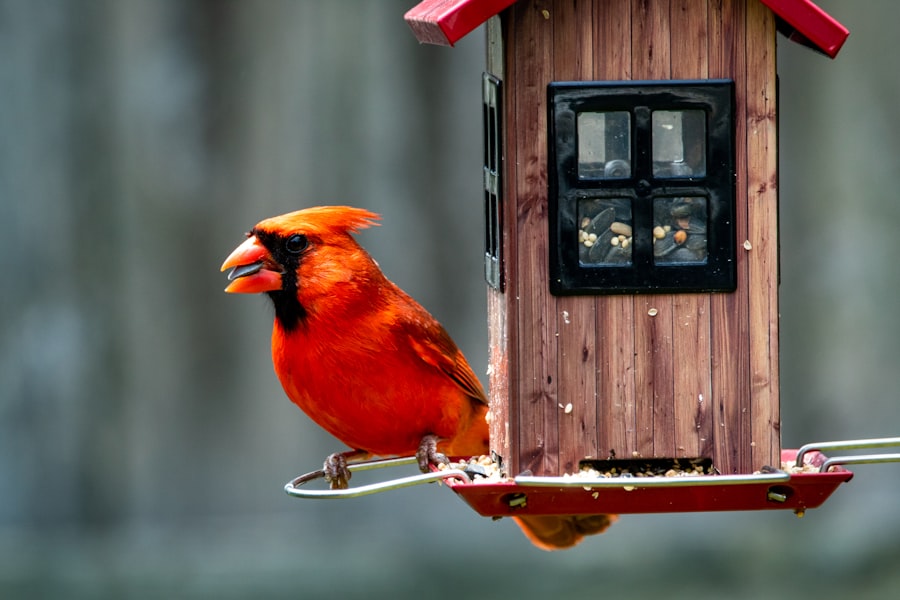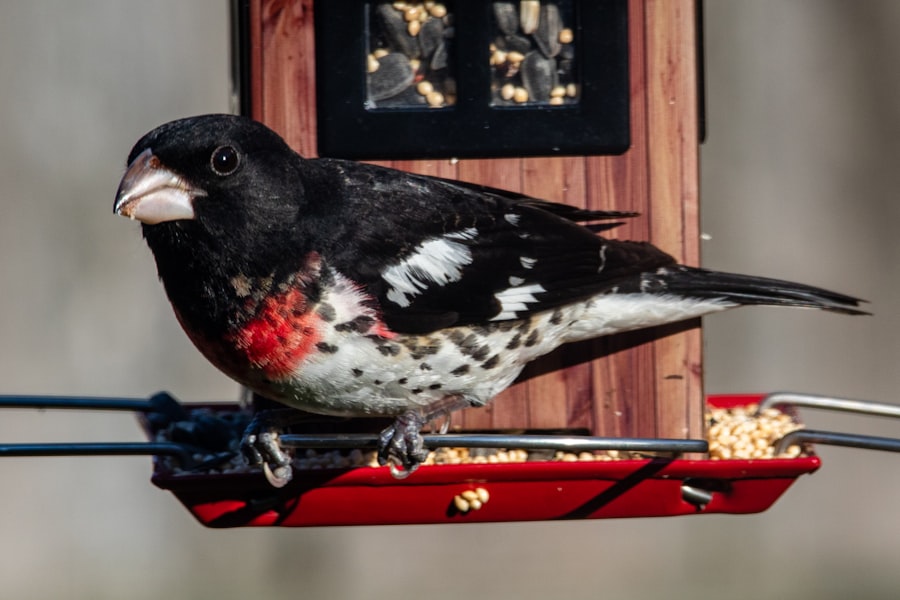Keeping chickens at home offers numerous benefits and challenges. One primary advantage is the consistent supply of fresh, organic eggs, which can reduce grocery expenses and provide high-quality nutrition. Some individuals also raise chickens for meat production.
Chickens can serve as unique and entertaining companions, with distinct personalities that many find calming and therapeutic to observe. They contribute to pest control by consuming insects and other small pests in yards and gardens. Additionally, chicken manure serves as an effective natural fertilizer for plants.
Maintaining a home chicken flock allows individuals to connect with nature and potentially reduce their ecological footprint. However, it requires significant time, effort, and resources. Proper care involves providing suitable living conditions, regular feeding, and appropriate healthcare.
Owners must also commit to cleaning and maintaining the chickens’ living space consistently. Before deciding to keep chickens, it is crucial to carefully evaluate one’s ability to meet these responsibilities. While challenging, many find the experience of keeping chickens at home to be rewarding and worthwhile for those willing to invest the necessary effort.
Table of Contents
- 1 Choosing the Right Breed of Chicken for Your Home
- 2 Setting Up a Coop and Run for Your Chickens
- 3 Feeding and Caring for Your Chickens
- 4 Understanding Local Regulations and Laws for Keeping Chickens
- 5 Dealing with Common Health Issues in Chickens
- 6 Enjoying the Rewards of Fresh Eggs and Companionship from Your Chickens
- 7 FAQs
- 7.1 What are the benefits of keeping chickens at home in the UK?
- 7.2 What do I need to consider before keeping chickens at home in the UK?
- 7.3 What are the housing requirements for keeping chickens at home in the UK?
- 7.4 What do chickens eat and how do I care for them?
- 7.5 Are there any legal requirements for keeping chickens at home in the UK?
- 7.6 What are some common health issues for chickens and how can I prevent them?
Key Takeaways
- Keeping chickens at home provides a sustainable source of fresh eggs, natural pest control, and a rewarding hobby for the whole family.
- When choosing the right breed of chicken for your home, consider factors such as egg production, temperament, and climate adaptability.
- Setting up a coop and run for your chickens requires adequate space, protection from predators, and proper ventilation and insulation.
- Feeding and caring for your chickens involves providing a balanced diet, clean water, regular health checks, and a safe and comfortable environment.
- Understanding local regulations and laws for keeping chickens is essential to avoid potential fines and conflicts with neighbors or local authorities.
Choosing the Right Breed of Chicken for Your Home
Purpose of Keeping Chickens
Firstly, you will need to think about the purpose of keeping chickens. If you are primarily interested in having a supply of fresh eggs, then you will want to choose a breed that is known for its egg-laying abilities. Some popular egg-laying breeds include the Rhode Island Red, Leghorn, and Australorp. On the other hand, if you are interested in raising chickens for meat, then you will want to choose a breed that is known for its meat production, such as the Cornish Cross or the Plymouth Rock.
Climate and Environment
Additionally, you will need to consider the climate and environment in which you live. Some chicken breeds are better suited to cold climates, while others are better suited to warm climates. It’s important to choose a breed that is well-adapted to the climate in your area in order to ensure that they are healthy and comfortable.
Space and Breed Characteristics
Furthermore, you will also need to consider the space that you have available for your chickens. Some breeds are more suited to confinement and do well in smaller spaces, while others require more room to roam and forage. By taking these factors into consideration, you can choose a breed of chicken that is well-suited to your specific needs and circumstances. Each breed of chicken has its own unique characteristics and traits. Some breeds are known for being friendly and docile, making them great pets and companions, while others are more independent and less inclined to interact with humans. Additionally, some breeds are known for being more vocal than others, which may be a consideration if you live in a residential area with close neighbors.
Setting Up a Coop and Run for Your Chickens

Setting up a suitable coop and run for your chickens is essential for their health and well-being. The coop is where your chickens will sleep, lay eggs, and seek shelter from the elements, while the run is where they will spend their days foraging and exercising. When designing and building a coop and run for your chickens, there are several important factors to consider.
Firstly, it’s important to ensure that the coop provides enough space for your chickens to move around comfortably. The general rule of thumb is to allow at least 2-3 square feet of space per chicken inside the coop, and at least 8-10 square feet of space per chicken in the run. Additionally, the coop should be well-ventilated to prevent moisture buildup and ensure good air circulation.
It should also be predator-proof, with secure latches and strong wire mesh to keep out potential threats such as raccoons, foxes, and birds of prey. Furthermore, the coop should be equipped with nesting boxes where your hens can lay their eggs in privacy. Each nesting box should be large enough for a hen to comfortably enter and exit, and lined with clean bedding material such as straw or wood shavings.
Additionally, the coop should have roosting bars where your chickens can perch at night, as well as easy access to food and water. The run should be securely fenced in to prevent your chickens from wandering off or becoming vulnerable to predators. It should also provide access to fresh grass, dirt, and other natural materials for your chickens to scratch and peck at.
On the other hand, it’s important to regularly clean and maintain the coop and run to ensure that they remain clean and sanitary for your chickens. This involves regularly removing soiled bedding from the coop, cleaning out the nesting boxes, and raking or turning over the soil in the run to prevent the buildup of waste and parasites. By providing a clean and comfortable living environment for your chickens, you can help to ensure that they remain healthy and happy.
Feeding and Caring for Your Chickens
Proper feeding and care are essential for keeping your chickens healthy and productive. Chickens require a balanced diet that provides them with all the essential nutrients they need to thrive. A good quality commercial chicken feed is a convenient option that provides a balanced mix of grains, protein, vitamins, and minerals.
There are different types of chicken feed available depending on the age and purpose of your chickens – chick starter feed for young chicks, grower feed for adolescent chickens, layer feed for hens laying eggs, and broiler feed for meat-producing chickens. In addition to commercial feed, it’s important to supplement your chickens’ diet with fresh fruits and vegetables, as well as kitchen scraps such as leftover grains, bread, or pasta. Chickens also enjoy eating insects such as mealworms or crickets as a source of protein.
It’s important to provide access to clean water at all times as well. Caring for your chickens also involves regular health checks to monitor their well-being. This includes checking for signs of illness or injury such as abnormal behavior or appearance changes.
Regularly inspecting their feathers, eyes, comb, wattles, legs, feet, and vent can help identify any potential health issues early on. Additionally, providing regular dust baths helps keep their feathers clean and free from parasites. On the other hand, it’s important to keep in mind that different breeds may have different dietary requirements or health considerations.
For example, some breeds may be more prone to obesity or egg-laying issues if overfed or under-exercised. It’s important to research the specific needs of your chosen breed in order to provide them with the best care possible.
Understanding Local Regulations and Laws for Keeping Chickens
Before deciding to keep chickens at home, it’s important to understand the local regulations and laws regarding urban or suburban chicken keeping in your area. Many cities or towns have specific ordinances that govern how many chickens you can keep, where they can be kept, and what kind of structures are allowed for coops and runs. Some areas may require a permit or license to keep chickens while others may have strict zoning regulations regarding property size or distance from neighboring properties.
It’s important to check with your local government or zoning department to understand what rules apply in your area. Additionally, some areas may have specific regulations regarding noise levels or odor control associated with keeping chickens. It’s important to be considerate of your neighbors when keeping chickens at home by maintaining a clean coop and run environment and minimizing noise disturbances.
On the other hand, understanding local regulations is important not only for legal compliance but also for ensuring a positive relationship with neighbors and community members. By being aware of local laws and regulations regarding chicken keeping, you can avoid potential conflicts or misunderstandings while enjoying the benefits of keeping chickens at home.
Dealing with Common Health Issues in Chickens

Parasites and Infestations
Common health issues in chickens include parasites such as mites or lice, which can cause discomfort and affect egg production. Regularly inspecting your chickens’ feathers and skin can help identify signs of infestation early on.
Respiratory Infections
Respiratory infections are another common health issue in chickens, which can be caused by poor ventilation or exposure to damp conditions. Symptoms include coughing, sneezing, or nasal discharge. Providing good ventilation in the coop along with clean bedding material can help prevent respiratory issues.
Other Health Concerns and Prevention
Egg binding is another health concern in hens where an egg becomes stuck in the reproductive tract, which can be life-threatening if not addressed promptly by a veterinarian. It’s important to have a good relationship with a veterinarian who specializes in poultry care who can provide guidance on preventative care as well as treatment options if needed. Practicing good biosecurity measures such as quarantining new birds before introducing them into an existing flock can help prevent the spread of diseases among your chickens. Additionally, providing a clean living environment along with regular health checks can help maintain the overall well-being of your flock.
Enjoying the Rewards of Fresh Eggs and Companionship from Your Chickens
Keeping chickens at home not only provides a sustainable source of fresh eggs but also offers companionship and entertainment. Collecting eggs from your own backyard is not only convenient but also ensures that you know exactly where your food comes from. Chickens also have unique personalities which make them interesting pets to observe and interact with.
They can be quite social animals who enjoy human company especially if they are handled regularly from a young age. In addition to fresh eggs and companionship, keeping chickens at home offers an opportunity for children or adults alike to learn about responsibility through caring for animals. It teaches valuable lessons about where food comes from as well as respect for animals’ welfare.
On the other hand, many people find that spending time with their chickens can be therapeutic especially when it comes to reducing stress or anxiety levels. The simple act of watching chickens go about their daily activities such as scratching at the ground or taking dust baths can be calming and enjoyable. In conclusion, keeping chickens at home offers numerous benefits including fresh eggs, pest control assistance in gardens or yards as well as companionship from these unique animals.
However, it’s important to carefully consider factors such as breed selection, housing requirements as well as local regulations before embarking on this rewarding endeavor.
If you’re considering keeping chickens at home in the UK, you may also want to think about the size of your chicken coop door. Poultry Wizard has a helpful article on chicken coop door size that provides important information on ensuring your coop is properly equipped for your feathered friends. Additionally, they offer ideas for large chicken coop designs to give your chickens plenty of space to roam. And if you’re considering keeping turkeys as well, you can find out if they need a coop in this article on turkey coop requirements.
FAQs
What are the benefits of keeping chickens at home in the UK?
Keeping chickens at home in the UK can provide a sustainable source of fresh eggs, natural pest control for your garden, and a rewarding hobby for the whole family.
What do I need to consider before keeping chickens at home in the UK?
Before keeping chickens at home in the UK, you need to consider local regulations and restrictions, the space and shelter requirements for the chickens, and the time and effort needed for their care and maintenance.
What are the housing requirements for keeping chickens at home in the UK?
Chickens need a secure and predator-proof coop with adequate space for nesting, roosting, and foraging. The coop should also have good ventilation and be kept clean to prevent disease.
What do chickens eat and how do I care for them?
Chickens require a balanced diet of commercial feed, fresh water, and occasional treats such as fruits and vegetables. They also need regular health checks, protection from predators, and proper waste management.
Are there any legal requirements for keeping chickens at home in the UK?
In the UK, there are regulations and guidelines for keeping chickens at home, including registration with the Department for Environment, Food & Rural Affairs (DEFRA), and compliance with local bylaws and animal welfare laws.
What are some common health issues for chickens and how can I prevent them?
Common health issues for chickens in the UK include parasites, respiratory infections, and egg-laying problems. Preventive measures include regular vaccinations, proper nutrition, and maintaining a clean and stress-free environment.
Meet Walter, the feathered-friend fanatic of Florida! Nestled in the sunshine state, Walter struts through life with his feathered companions, clucking his way to happiness. With a coop that’s fancier than a five-star hotel, he’s the Don Juan of the chicken world. When he’s not teaching his hens to do the cha-cha, you’ll find him in a heated debate with his prized rooster, Sir Clucks-a-Lot. Walter’s poultry passion is no yolk; he’s the sunny-side-up guy you never knew you needed in your flock of friends!







